Letter from Africa: Ghana's uniform lovers
- Published
- comments
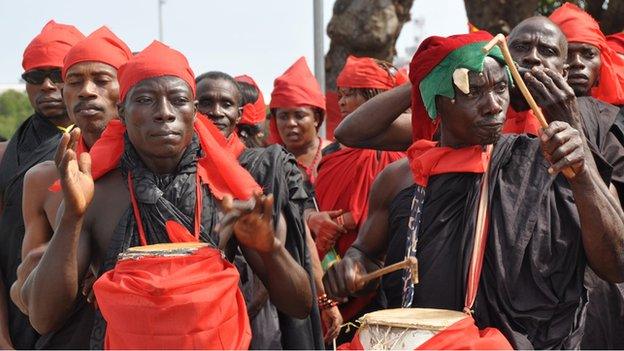
In our series of letters from African journalists, writer Elizabeth Ohene considers Ghanaians' love of dressing up for every occasion.
I do not recall I ever went through that period when young people seem to love uniforms. I have friends who were attracted to and went into nursing primarily because of the uniform.
Of course, I do not discount the fact that many others took up nursing because they like caring for people.
But I used to think the world was made up of those who wore uniforms and those who did not.
As school children, I remember we could not wait to get out of uniforms and wear our hair differently from the regulation cut.
Chinese vs Ghanaian textiles
But now it seems almost every aspect of life in Ghana comes with a uniform of some kind.
People wear uniforms in the most civilian of jobs, including in the banking and retail sectors. And uniforms are not only for work.
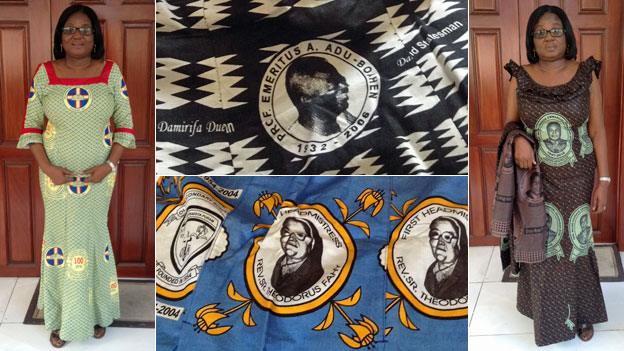
A selection of outfits from Elizabeth Ohene's wardrobe
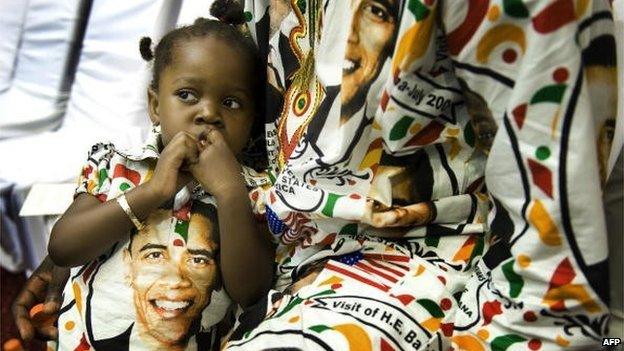
Clothes were designed for US President Barack Obama's visit to Ghana in 2009
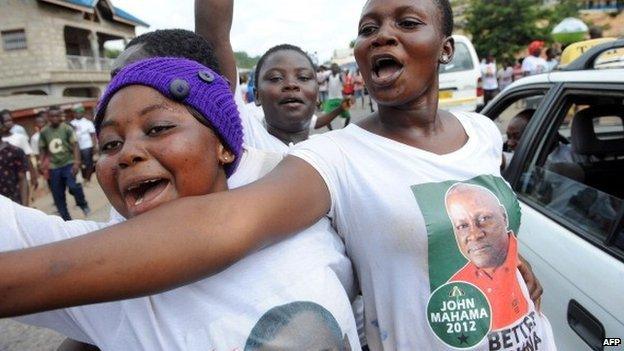
Political allegiances are often displayed through T-shirts
Every major event is marked with a uniform.
They range from specially printed T-shirts to specially designed and printed textiles from which we make clothes.
Our graphic designers, textile factories and tailors are kept busy around the clock. I have to amend that sentence: It is the Chinese textile factories that we keep busy.
The Ghanaian ones are struggling since the Chinese seem to be able to produce the textiles at half the price.
Costumes for congregations
Most events and anniversaries are celebrated with special cloths.
We made a special commemorative cloth when US President Barack Obama visited us in 2009 and when our President John Atta Mills died in 2012.
And when we celebrated 50 years of our independence, we made various commemorative cloths.
It used to be that when you go to church only the choristers and the priests wore uniforms.
Now you are encouraged to join one of the many church groups, and they all have uniforms for the different occasions listed on the church calendar.
I have a closet full of special cloths for secondary schools marking their 40th or 50th anniversaries.
Often, the entire crowd at the celebrations would be clad in the same special anniversary cloth.
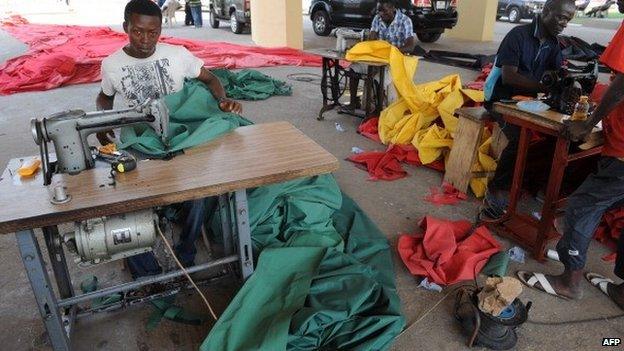
Tailors see a surge in business when national events are held
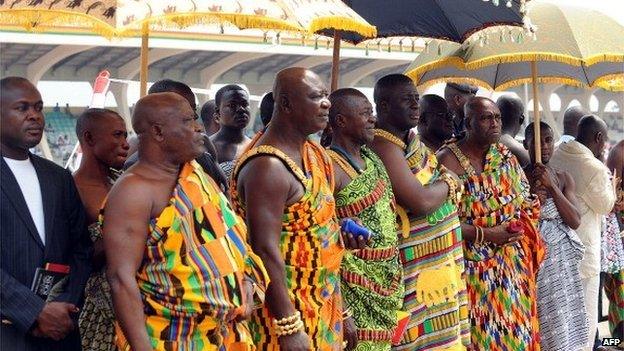
Ghana is famous for its kente cloth
Last week, I attended another 50th anniversary celebration of a secondary school and I stood out like a sore thumb as I was the only person without the special cloth.
The uniform craze extends to deaths and funerals.
When there is a death, you have to choose a special fabric that all members of the family and close friends would be expected to buy and make clothes to wear to the funeral.
Bulging wardrobe
Sometimes, the cloth is specially ordered from the textile factory and it comes complete with photos of the dead person printed across the fabric.
People have been known to borrow money to buy the special fabric for a funeral.
There is no suggestion that such people have not got any suitable clothes to wear to the funeral; it is simply a case of having to wear the uniform.
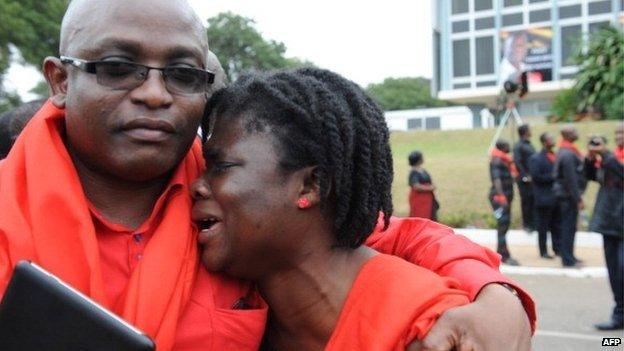
Mourners are expected to wear the same colours at funerals
I have ended up in the totally ridiculous situation of having a closet full of special clothes for special funerals that I cannot wear anywhere else.
Happy occasions also come with uniforms.
The latest one was the special cloth we ordered to celebrate the centenary of the establishment of the Presbyterian Church in my village, Abutia Teti.
I have no idea when I will be able to wear that cloth again but we certainly had a great time at the celebrations with all of us decked out in our uniforms.
If you would like to comment on Elizabeth Ohene's latest column, please use the form below. A selection of views will be published.